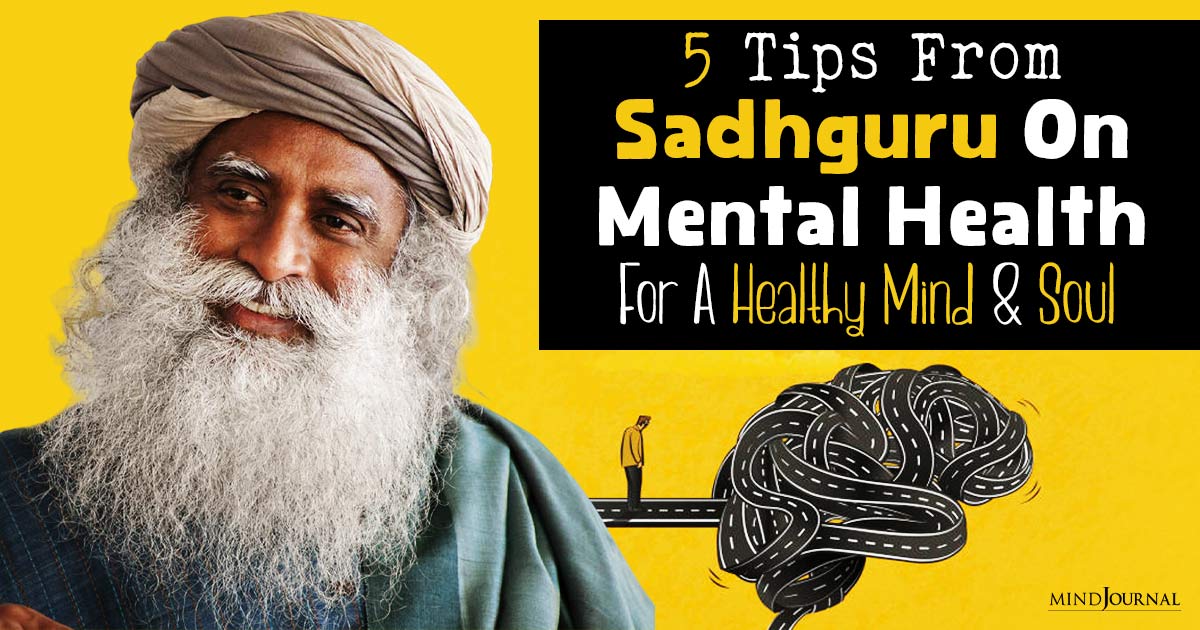This World Mental health day 2023, dive into the profound wisdom of Sadhguru on mental health. Learn how the spiritual guru shares insights that can help you navigate the complexities of your inner world.
Are you feeling like you’re bearing the entire universe’s burden on your back? Well, in today’s fast-paced world, what leads to mental health issues has undoubtedly become more prevalent.
Millions of people grapple with these challenges every day, often in silence. It’s crucial to shed light on the concept of mental health, its significance, and how we can address it, especially on World Mental Health Day 2023. So, let’s dive into Sadhguru’s unique insights on mental health issues and how they can guide you.
Perspective Sadhguru On Mental Health: Understanding What Leads To Mental Health Issues
1. Unlock the power of your mind:
One of Sadhguru mental health reminders is that you that your mind is an incredible powerhouse with vast capabilities. It can experience both happiness and sadness. He emphasizes the role of external stimuli in disturbing your mental well-being.

“If you’ve experienced it, you know there’s no suffering quite like mental illness because your mind has immense capabilities. If these things work in your favor, life becomes great. And if they work against you, there’s no escape because the stimuli for suffering don’t even come from outside,” he explains.
Read more here: 50+ Best Sadhguru Quotes on Love, Life, and Letting Go
2. Beware of False labels:
Sadhguru warns against falling for false labels and common misconceptions. He draws attention to the misuse of the term “adrenaline,” emphasizing its role as an emergency mechanism.
“People often say, ‘I like the adrenaline,’ without realizing its purpose,” he explains. Adrenaline is meant for life-threatening situations, not for everyday living. Using it recklessly can lead to harmful consequences, he advises, stating, “If you don’t meet your end, you’ll surely face a breakdown.”
3. Crossing the thin line
Pay attention to the fine line between sanity and insanity, Sadhguru advises. Humans often enjoy venturing beyond this line with anger, hatred, jealousy, alcohol, or drugs.
For some, the little bit of madness that comes with this trespassing feels like euphoria. “Many people who’ve lost their way were once ‘normal’ individuals like you. One day, it’s all gone. Something snaps, and suddenly they’re on the streets,” he warns.
Read more here: Your Mental Health Matters: 5 Habits You Need To Let Go Of Right Now
4. Define your own purpose:
One of the wisdoms of Sadhguru on mental health is about the human tendency to compare. He observes that this trait affects people from a very young age, as even children face the burden of their parents’ high expectations.
He criticizes the rigid structure of the education system, stating, “Not everyone is a perfect fit for it. We’re mass-producing individuals for a fragile machine. If you’re not the right material, you’ll inevitably break,” he cautions. His perspective offers a unique and thought-provoking insight into the pressures of modern society.
5. The pain of mental illness
In his observations, Sadhguru highlights a stark contrast between physical pain and mental illness. He notes that while physical pain typically evokes compassion, mental health challenges can often lead to humiliation.
Sadhguru emphasizes the difficulty in distinguishing between mental sickness and behavioral choices, particularly in the context of individuals with disturbed family members. Additionally, he points out that the prevalence of mental illnesses is increasing due to diminishing support systems.

Incorporating the wisdom of Sadhguru on mental health into your life can help you navigate the complex terrain of mental health.
It’s essential to acknowledge the significance of your mind’s capabilities, understand the dangers of crossing the line into destructive behaviors, avoid using labels carelessly, define your unique purpose, and show compassion for those facing mental health challenges.
So, on this World Mental Health Day, take a moment to reflect on these insights and take positive steps toward a healthier, more compassionate mindset.
Disclaimer: This article is for informational purposes only and is not intended as a substitute for professional mental health advice, diagnosis, or treatment. While we strive for accuracy, we do not guarantee the completeness or reliability of the information provided. Readers should always seek guidance from a qualified mental health professional for any concerns regarding their mental well-being.










Leave a Reply